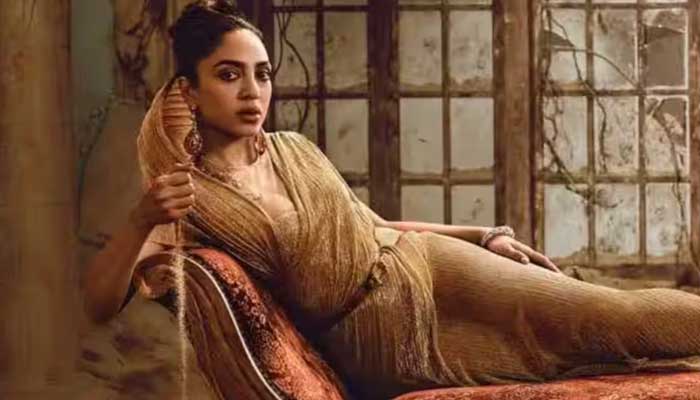Review: Made in Heaven Season 2, “Same-sex marriage isn’t legal in India”

Much like the traditional paan and sweetmeat served at the conclusion of a lavish Delhi wedding, each episode of Made in Heaven Season 2 is adorned with its indispensable closing voiceovers. These voiceovers, presented by the introspective videographer portrayed by Shashank Arora, serve as subtextual summaries that are a recurrent feature of the show. About an hour into the new season, Arora’s character somberly declares, “A somber fairytale continues to linger over the capital city of Delhi,” reentering the narrative like an opinionated old acquaintance rejoining the social media scene. Around the midway point, he further asserts, “I don’t believe marriages are made in heaven.” Although these narrations may appear ponderous and self-evident, they do offer a practical recap of each episode’s essence, should the storyline’s thread be inadvertently dropped.
Originally released in 2019 and conceived by Zoya Akhtar and Reema Kagti, with the consistent involvement of writer-director Alankrita Shrivastava, the inaugural season of Made in Heaven Season 2 ingeniously satirized the hierarchical divisions within Delhi society. Through the exploits of two ambitious wedding planners, it unveiled layers of rigidity and adherence to norms entrenched within India’s corporate elite. Concluding with Tara (Sobhita Dhulipala) and Karan (Arjun Mathur) in turmoil, their esteemed ‘Made in Heaven Season 2’ agency office defiled and demolished by right-wing extremists, Season 2 resumes the story six months later. Jauhari-ji (Vijay Raaz), now an active partner in their enterprise, aids them in regaining their footing. Mona Singh joins the cast as a pragmatic auditor, along with her portrayal of Jauhari’s wife, infusing an effervescent screwball energy into the initial episodes. “You ordered three large burgers?” she playfully taunts Jaspreet, aka Jazz (Shivani Raghuvanshi). “With fries too?”
Despite Tara and Karan’s success in securing high-profile clients and slowly reestablishing their presence in the industry, their personal lives continue to weigh heavily. Karan, haunted by past traumas linked to his sexuality, finds himself emotionally manipulated by his homophobic mother, who is battling cancer and adamantly rejecting chemotherapy. This predicament propels him into a downward spiral marked by gambling, debt accumulation, and substance abuse. Meanwhile, Tara is in the process of divorcing her industrialist husband Adil (Jim Sarbh) due to his renewed affair with childhood friend Faiza (Kalki Koechlin). Encouraged by her mother, portrayed with authenticity by Manini Mishra, Tara seeks a more substantial share of the settlement than what has been proposed.
The show’s structure revolves around seven-hour-long episodes, each dedicated to one or two weddings, magnifying specific conflicts. The first season delved into, and often confronted head-on, topics such as dowry, age bias, superstition, and sexual assault. The second season expands this list to include colorism, caste discrimination, polygamy, and domestic abuse. While instances of incisive social commentary are present, as exemplified by the portrayal of domestic violence, there are also narrative threads that meander or fail to reach fruition, such as a perplexing interlude set in France.
In the fifth episode, helmed by director Neeraj Ghaywan, Pallavi (Radhika Apte), an Ivy League-educated lawyer and outspoken advocate of her Dalit identity, returns from New York for her wedding. Preferring a court marriage, she faces resistance from her in-laws who insist on a traditional ceremony. Pallavi requests a Dalit wedding as well, leading to the series’ most challenging and confrontational episode. When her partner dismisses her concerns as “paranoia,” Pallavi opens a newspaper brimming with upper-caste matrimonial advertisements. Radhika Apte’s performance embodies the assertiveness seen in Ghaywan’s previous heroines like Richa Chadha in “Masaan” and Konkona Sen Sharma in “Ajeeb Daastaans.” Nonetheless, the episode lacks the intricacy and visual lyricism that marked Ghaywan’s earlier work, even as it remains pertinent and thought-provoking.
Despite the growing repetitiveness of its episodic structure, Made in Heaven Season 2 grants ample space for the development of its secondary and tertiary characters. Adil’s half-sister enters the scene, echoing Tara’s bid for recognition. Jauhari’s elder son experiences entanglement in a police inquiry, likely inspired by the ‘Bois Locker Room’ scandal in Delhi. Transgender doctor-turned-actor Trinetra Haldar Gummaraju makes a notable debut, her character progressing beyond initial didactic gender-awareness moments. Though Kalki Koechlin’s presence is desired more, she stands out as one of the series’ exceptional performers, often relegated to the periphery.
Amidst the narrative density, Dhulipala’s presence occasionally recedes. Her intricate and empathetic portrayal of a socially upward female entrepreneur, embodying the East Delhi girl who underwent grooming classes and polished her English to assimilate, was a standout in the first season. However, in this installment, adrift in a legal battle, her opportunities to shine are limited. The dynamic between Tara, Adil, and Faiza lacks the potency they exhibited as a tumultuous trio. Mathur maintains his dependable portrayal of Karan, capturing his vulnerability, dignity, and humor. Raghuvanshi’s Jazz demonstrates authentic growth. The series is also replete with cameo appearances, including Sanjay Kapoor exclaiming “What a place!” and Anurag Kashyap earnestly discussing the casting of Pulkit Samrat in a film.
An interviewee on camera remarks, “Same-sex marriage isn’t recognized in India.” Another confidently asserts, “It will be.” Given the pending verdict of the Supreme Court on petitions advocating legal recognition of gay marriages, the alignment of this optimism with real-world progress remains to be seen. Akhtar and Kagti have crafted a compassionate and progressive series in Made in Heaven Season 2, with the hope that it will be remembered for more than mere aspirations.
